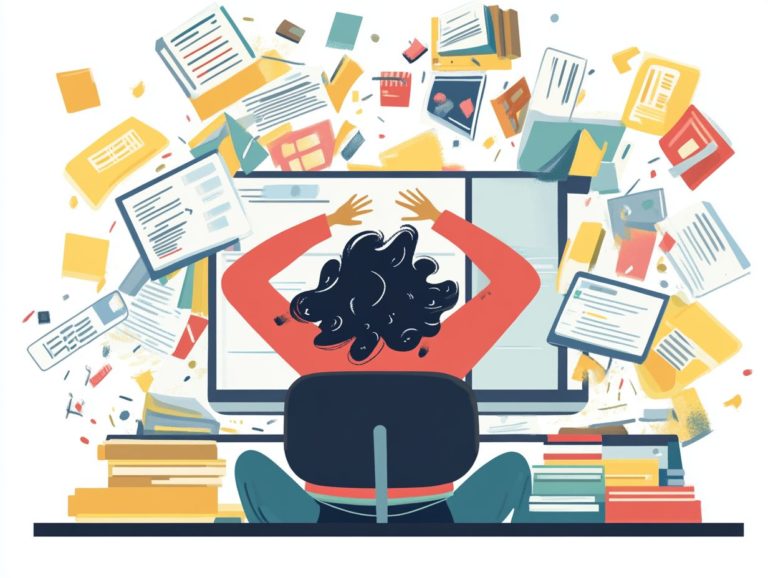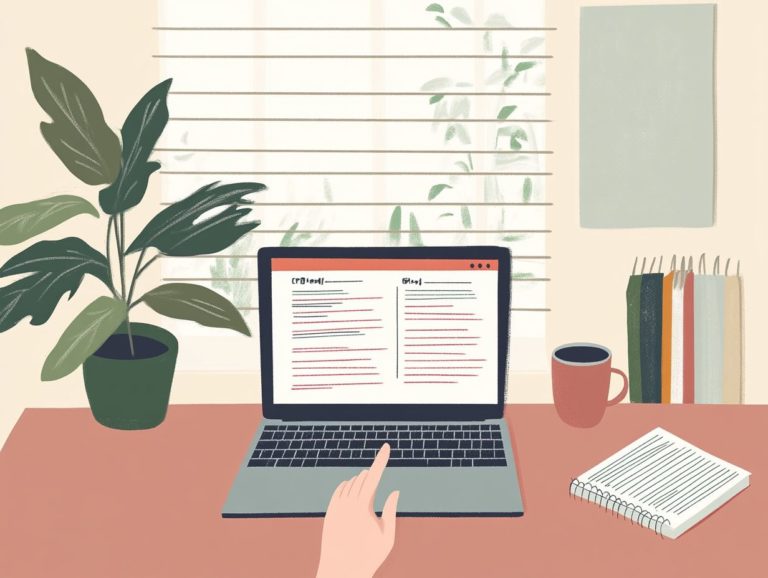5 Noteworthy Copyright Reforms Happening Now
The landscape of copyright law is evolving, with significant reforms on the horizon that are poised to reshape the rights of creators and copyright holders.
From the EU Copyright Directive to the proposed Copyright Small Claims Court, these changes are designed to enhance protection, streamline processes, and modernize the handling of copyright issues.
This article delves into key reforms, their objectives, potential challenges, and the implications for the creative community.
Stay alert! This change in copyright law could affect you.
Contents
- Key Takeaways:
- 1. EU Copyright Directive
- 2. CASE Act
- 3. Copyright Small Claims Court
- 4. Copyright Office Modernization
- 5. Copyright Royalty Board Reform
- What Are the Goals of These Reforms?
- How Will These Reforms Affect Creators and Copyright Holders?
- What Are the Potential Challenges and Controversies Surrounding These Reforms?
- What Are the Timelines for Implementation of These Reforms?
- How Can Creators and Copyright Holders Stay Informed and Involved in These Reforms?
- What Are the Long-Term Effects of These Reforms on the Copyright Industry?
- Frequently Asked Questions
- What are the top 5 noteworthy copyright reforms happening now?
- What is the Music Modernization Act and how does it impact copyright?
- What changes are being made to copyright laws in the European Union?
- How will the CASE Act affect copyright enforcement for small creators?
- What is the purpose of the Copyright Alternative in Small-Claims Enforcement (CASE) Act?
- How are digital streaming royalty changes impacting copyright?
Key Takeaways:
- The EU Copyright Directive aims to modernize copyright laws and protect creators’ rights online.
- The CASE Act will establish a small claims court for copyright disputes, making it easier for creators to protect their work.
- The creation of a Copyright Small Claims Court and modernization of the Copyright Office will help streamline the legal process for copyright cases.

1. EU Copyright Directive
The EU Copyright Directive marks an important change in the realm of copyright law, aiming to modernize it for the digital age. It seeks to strike a delicate balance between the rights of copyright holders and the needs of users.
By enabling the European Parliament to establish these regulations, it addresses the power imbalance between major tech firms and content creators. This directive is designed to set clearer standards for how digital platforms handle copyrighted content, ensuring that creators are fairly compensated for their contributions.
For you as a news publisher, this is very important. This directive provides a potential pathway to regain leverage against the unauthorized use of your articles, which online aggregators have often exploited. The push for copyright reform reflects a broader commitment to safeguarding creative works in the face of rapid digital distribution and sharing challenges.
2. CASE Act
The CASE Act introduces an innovative mechanism designed specifically for solving copyright issues by establishing a Copyright Claims Board, a group that helps solve copyright issues. This initiative aims to streamline the resolution process, alleviating some of the burdens placed on federal courts.
This approach gives creators a new way to solve copyright issues, allowing them to manage claims with greater efficiency and affordability. By reducing legal expenses and simplifying procedures, the CASE Act enhances accessibility for individuals who might otherwise find it challenging to defend their rights in a conventional court setting.
Beyond fostering a fairer environment for creators, this legislation holds considerable economic implications, instilling a sense of confidence in artists to innovate and share their work. Senator Thom Tillis’s advocacy for the CASE Act highlights his dedication to enabling the creative community, equipping them with vital tools and resources to safeguard their intellectual property.
3. Copyright Small Claims Court
The establishment of a Copyright Small Claims Court is designed with you in mind, offering an accessible space for copyright holders to assert their rights without the financial burdens that typically accompany traditional litigation.
This initiative aims to simplify the resolution of disputes, providing streamlined procedures and reduced costs. It enables creators those who often operate on limited resources to protect their intellectual property more effectively.
By fostering a more efficient claims process, the court enhances copyright protections, allowing artists, writers, and musicians to concentrate on their craft instead of navigating complex legal systems.
The economic benefits for you as a creator are substantial. This reform not only incentivizes innovation and creativity but also has the potential to revitalize creative industries, enabling more individuals to pursue their passions without the looming fear of infringement, ultimately stimulating broader economic growth.
Learn more about your rights and how to protect your work today!
4. Copyright Office Modernization
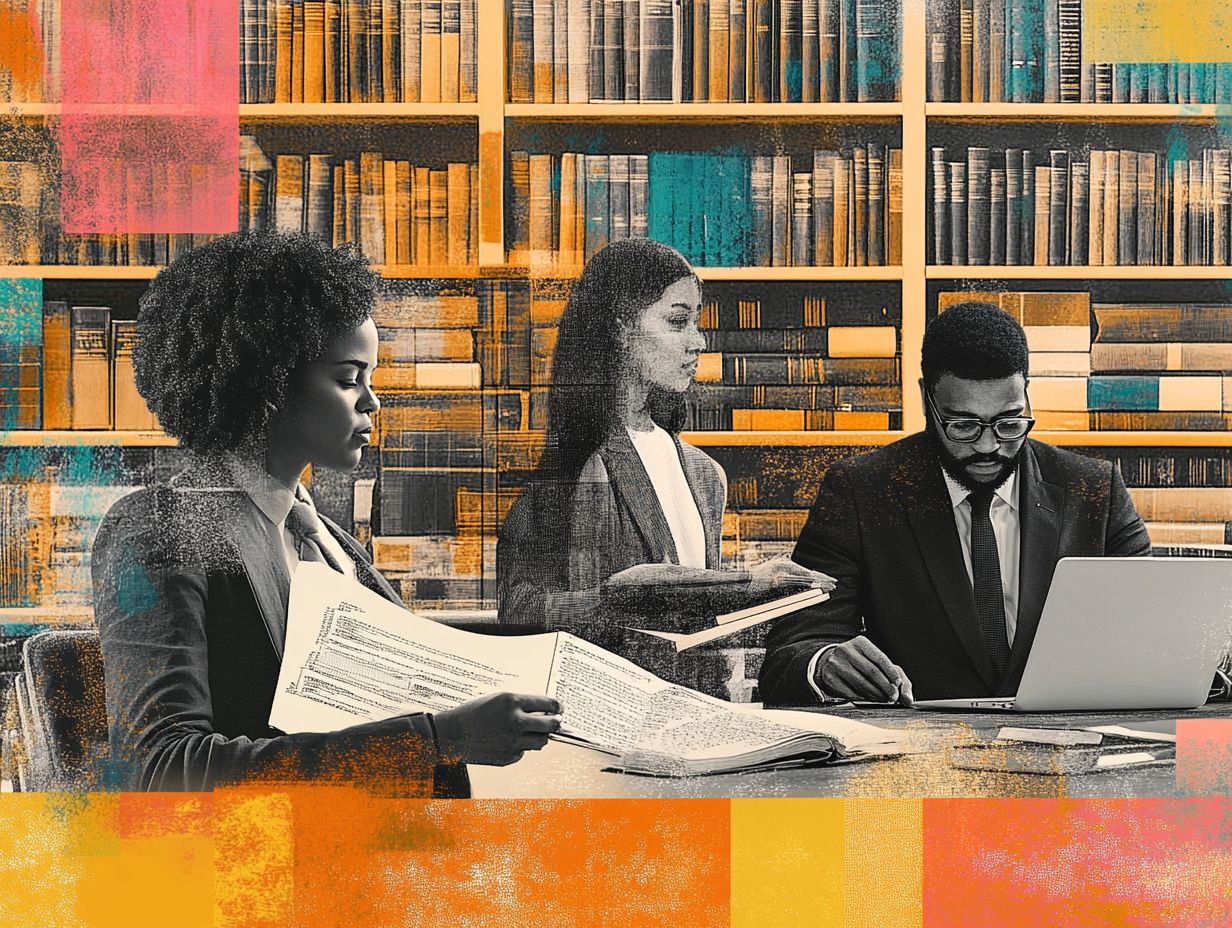
The modernization of the Copyright Office is a strategic initiative designed to enhance its efficiency in managing copyright registrations and protecting your creative work in today’s digital landscape.
This initiative includes various technological upgrades, such as streamlined online application processes and improved database management systems. By adopting new technologies, the office aims to simplify and speed up the copyright registration process, making it more accessible for you as a creator or inventor.
Procedural changes are being made to better align with the changing digital content landscape, tackling the challenges of rapid technological advancements. These enhancements improve your experience and address the urgent need for copyright reform, ensuring that your rights keep pace with the latest innovations in media and technology.
5. Copyright Royalty Board Reform
Reforming the Copyright Royalty Board is crucial for ensuring that royalty rates reflect the economic realities of the digital marketplace, providing fair compensation for copyright holders and their creative works.
This shift is essential for protecting original content creators and creating a fair environment for technology companies and news publishers reliant on these works.
Many people see the Board’s current structure as outdated, failing to capture modern consumption patterns. This can lead to inconsistent interpretations of copyright laws.
Legislative changes could simplify processes, making it easier for stakeholders to understand their rights and obligations. Strengthening copyright enforcement through these reforms would foster innovation while ensuring that creators receive fair compensation, ultimately benefiting the entire ecosystem.
What Are the Goals of These Reforms?
The primary goals of recent copyright reforms focus on enhancing protections for copyright holders, promoting fair use, and adapting copyright law to the challenges of the digital age. This balanced approach serves the public interest while respecting artistic works.
These reforms aim to establish a framework that protects your rights and encourages innovation by allowing new uses of copyrighted materials under clearly defined circumstances. By addressing the complexities of copyright exemptions, which allow certain uses of creative works without permission, they aim to clarify the legal landscape, enabling you and the industries that support you to thrive.
There s strong emphasis on adapting to technological advancements, ensuring that both you and consumers benefit from greater access to a diverse range of works.
We want to create a vibrant space where creativity thrives while firmly upholding the essential rights of copyright holders like yourself.
How Will These Reforms Affect Creators and Copyright Holders?
The forthcoming reforms are set to make a significant difference for creators and copyright holders, providing you with more efficient ways to protect your rights and ensuring fair compensation for your works.
These changes will enhance copyright protections that deter infringement and simplify the enforcement of your rights. With better access to legal avenues, you can pursue justice more easily, alleviating the burdens associated with legal disputes.
The economic implications of these reforms could be transformative, opening new opportunities for growth and innovation, especially for software developers and content aggregators. With a stronger legal framework in place, the potential for collaboration increases, benefiting a diverse range of stakeholders who depend on original content.
What Are the Potential Challenges and Controversies Surrounding These Reforms?
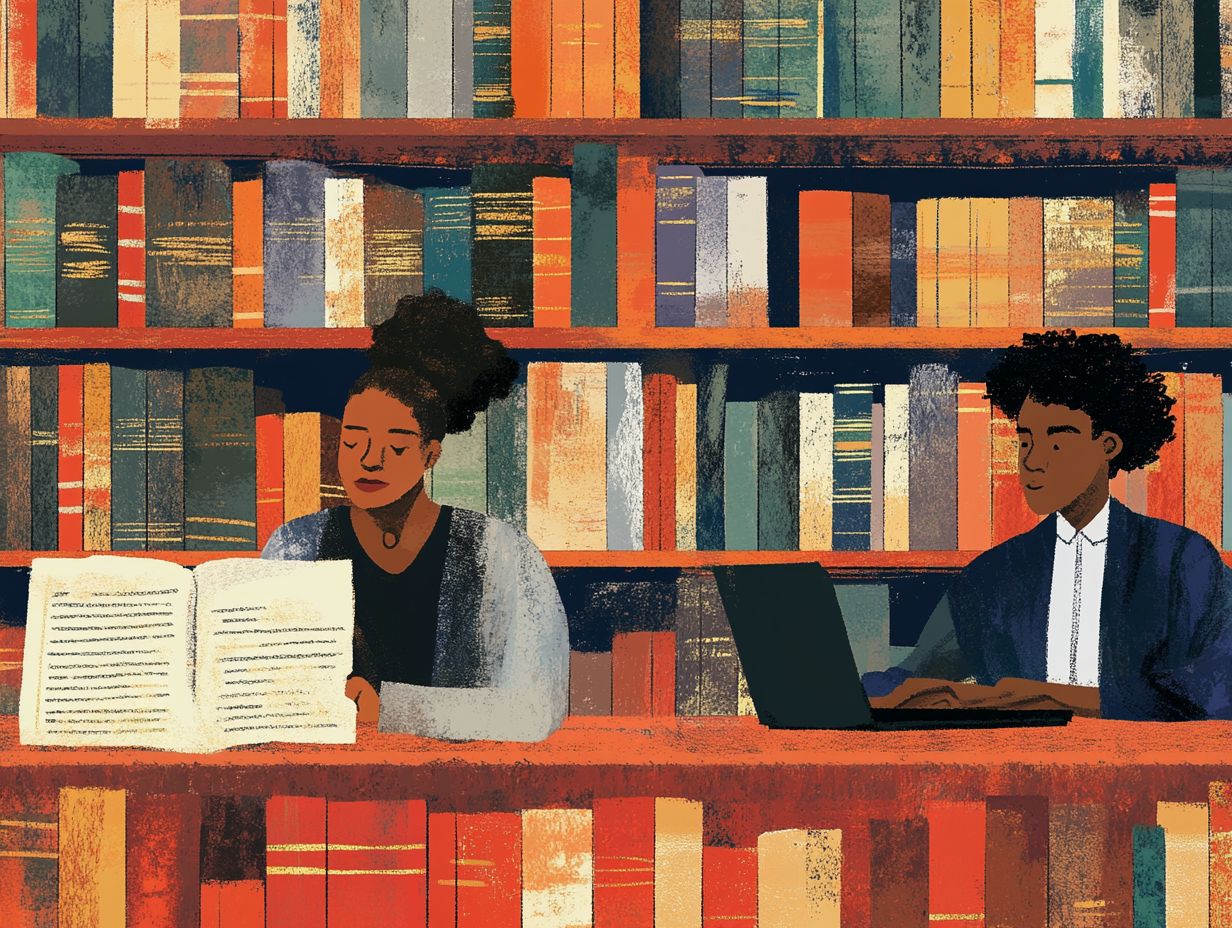
These reforms aim to strengthen copyright protections. However, they may face challenges, especially in balancing enforcement with First Amendment rights, similar to the recent changes in patent law that you should know.
Groups like the Electronic Frontier Foundation and Public Knowledge have raised important concerns about these changes. They suggest that these reforms could unintentionally stifle creativity and free expression online.
They also stress that overly strict regulations might hinder innovation and limit access to information. This could ultimately undermine the very audiences these protections aim to serve.
Such concerns may complicate the implementation of these reforms and shape public perception. This could foster growing mistrust in copyright law as it appears to prioritize profit over individual rights and freedoms in the digital age.
What Are the Timelines for Implementation of These Reforms?
The timelines for implementing these copyright reforms depend on various legislative proposals and the active participation of key stakeholders. This includes technology companies and copyright advocacy groups.
As discussions unfold, you can expect the US Congress to establish a framework that ensures the proposed changes progress efficiently. Early drafts of legislation are likely to surface in the next few months.
Critical milestones, like public hearings and periods for stakeholder feedback, will significantly shape these reforms. These can be anticipated in the coming year.
Collaboration between the Copyright Office and creative industries such as filmmakers, musicians, and software developers is vital. Their insights will inform legislative changes and facilitate a smoother transition into any new protocols that emerge.
How Can Creators and Copyright Holders Stay Informed and Involved in These Reforms?
As a creator or copyright holder, you can stay informed and engaged in the reform process. Actively participate in discussions, utilize resources offered by the Copyright Office, and collaborate with advocacy organizations like the Authors Guild and the Copyright Alliance.
Consider exploring platforms like Creative Commons and organizations such as the Electronic Frontier Foundation. They provide valuable insights and up-to-date information on copyright legislation.
Engaging in advocacy is essential. It gives you the opportunity to voice your concerns and suggestions directly to policymakers. By participating in public forums, attending workshops, and providing feedback during consultations, you can express your perspectives and influence policies that affect your work and rights.
Together, we can make these reforms work for everyone! This collective effort enhances the effectiveness of reforms and fosters a more favorable environment for creativity and innovation.
What Are the Long-Term Effects of These Reforms on the Copyright Industry?
The long-term impact of these copyright reforms on the industry could vary. This ranges from stronger protections for intellectual property to new challenges posed by generative AI and other emerging technologies.
The rise of generative AI might blur the lines of authorship and originality. This leads to questions about who truly holds the rights to content created alongside machines.
This ever-evolving digital environment could pave the way for new business models. These would allow creators to leverage technologies to enhance their works.
However, it also means facing competition from automated systems that can produce content at an astonishing pace. This dual-edged sword may ultimately redefine the economic value of creative works.
Such shifts prompt a much-needed reevaluation of traditional revenue models and licensing agreements.
Frequently Asked Questions
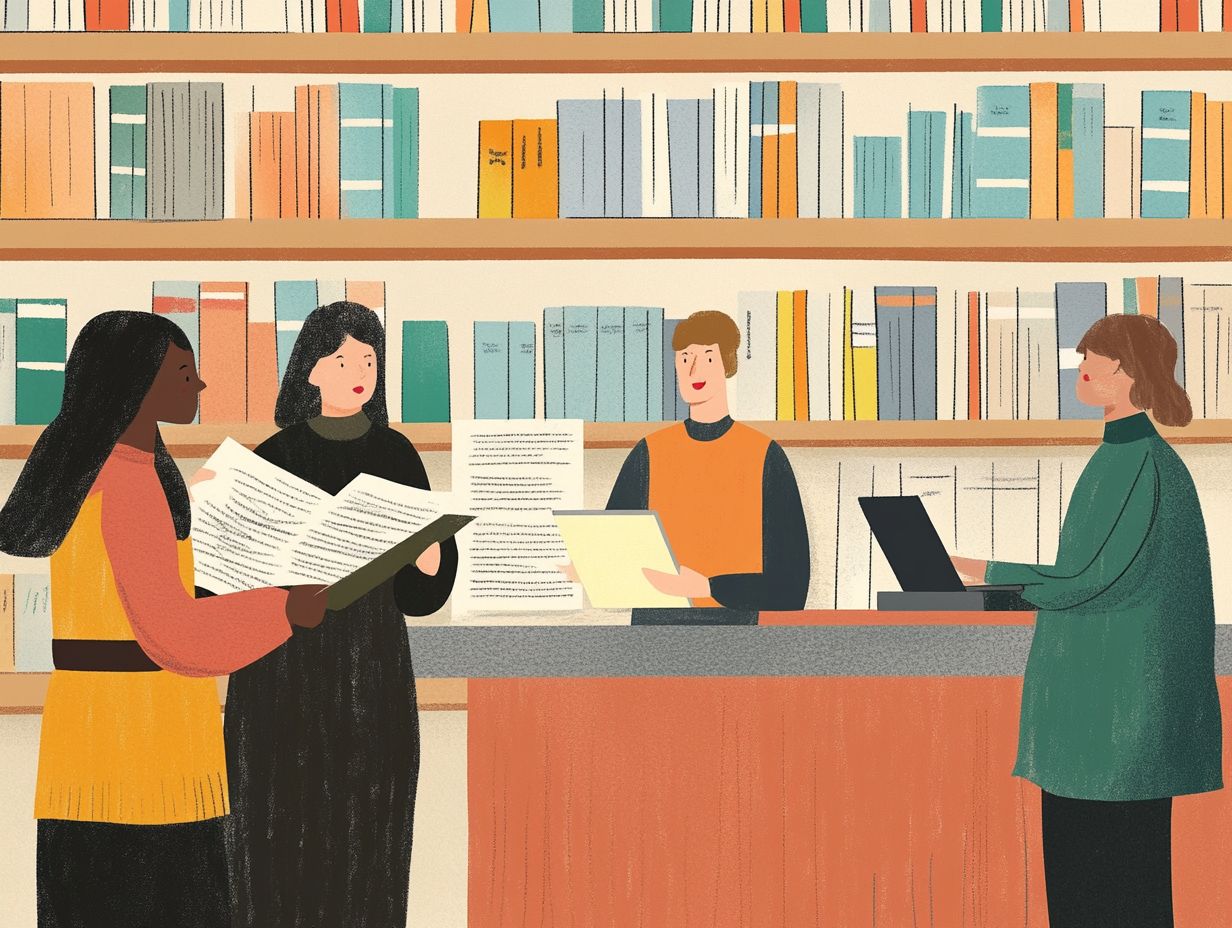
What are the top 5 noteworthy copyright reforms happening now?
Currently, five major copyright reforms are making waves: digital streaming royalty changes, the EU Copyright Directive, the Music Modernization Act, the CASE Act, and 5 things you didn’t know about copyright law and the Copyright Alternative in Small-Claims Enforcement Act.
What is the Music Modernization Act and how does it impact copyright?
The Music Modernization Act (MMA) updates how music licensing and royalties work in the digital world.
It streamlines licensing, ensuring creators and rights holders get fair compensation.
What changes are being made to copyright laws in the European Union?
The EU Copyright Directive aims to modernize copyright laws across member states.
Notably, article 13 holds online platforms accountable for copyrighted content shared on their sites.
How will the CASE Act affect copyright enforcement for small creators?
The CASE Act introduces a small claims court for copyright disputes.
This makes it easier and more affordable for small creators to protect their work.
What is the purpose of the Copyright Alternative in Small-Claims Enforcement (CASE) Act?
The CASE Act offers a simple and cost-effective way for small creators to enforce copyright.
It establishes a dedicated court for quicker resolution of disputes.
How are digital streaming royalty changes impacting copyright?
Changes to digital streaming royalties are reshaping how creators are paid.
These adjustments ensure that artists receive fair compensation in today’s digital market.

